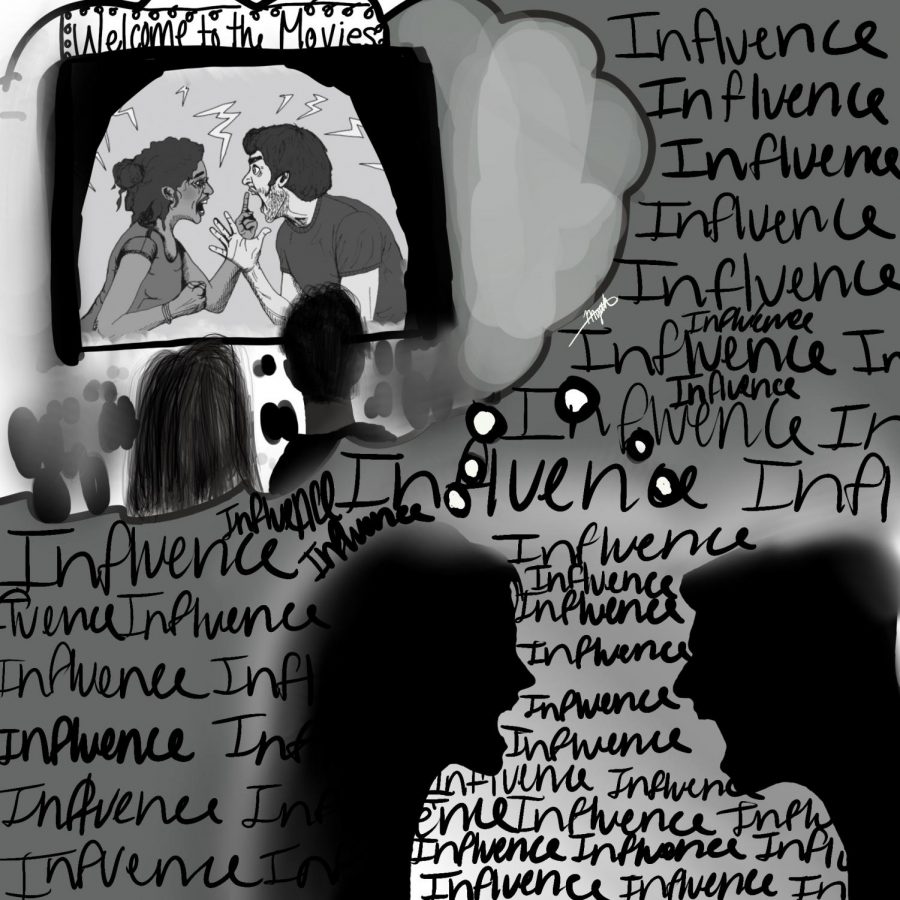Toxic love sells
Teenage relationship films exploit toxic advice to young viewers
The film industry has always guided young minds into a false reality. With over 600 movies made every year, it is easy to see the effects movie genres have on younger generations. Genres such as romantic comedies, crime dramas and even horror movies have given teenagers a false perception of relationships and what they should be like.
Toxic relationships are more prevalent in today’s society than in the past, and a lot of what viewers see on the big screen is being portrayed in teenage relationships. For example, Harley Quinn and The Joker from “Suicide squad”, Ross Geller and Rachel Green from “FRIENDS”, Edward Cullen and Bella Swan from “The Twilight Saga” and even Belle and the Beast from “Beauty and the Beast” all show toxic relationships. All of these couples are considered to be“power couples” and have been described as “the perfect relationship.” Each of those relationships have showed key factors to a toxic relationship such as passive-aggressiveness, jealousy, resentment, manipulation and mental and/or physical abuse; but why is that appealing to audiences and viewers?
“Viewers like to see the drama and oftentimes only like to watch those kinds of films to compare what they have to what they are viewing,” psychologist Suzanne Degges said. Teens often like to see an unrealistic relationship to try to “improve” their own relationship. The idea of having a toxic relationship has been shown to audiences as young as an infants and toddlers.
To show how early kids are being shown toxic relationships, look at films such as “Beauty & the Beast,” where Belle falls in love with her abuser after being held hostage by a beast who hurt her own father.
“There’s this thought that says, ‘Well, one day they’ll quit hurting me. One day they’ll quit deceiving me. Furthermore, when they do, I’m sufficient.’ And that is the manner by which they keep her hold on Belle. She is looking for her value, consideration, wellbeing, and everything all things considered and, obviously, it’s never there,” Degges said.
At that age, the brain is very easily influenced, which can lead to repeating or inhabiting the traits or actions seen in these movies and TV shows. For example, when kids see their favorite princess, they automatically want to live like them, dress like them and be like them in every way, so why wouldn’t they pick up the destructive relationship habits that they have seen?
Directors and filmmakers can be misguided by their motivation to produce something that is relatable to the viewer so that they feel more involved and understood. Once the viewer sees that they are not the only ones in the situation they are in, most feel that it makes the situation okay or not as dramatic or harmful as it may potentially be. This causes teens to be more receptive to the toxic relationships they see on TV, which can ultimately only harm them and their future.



